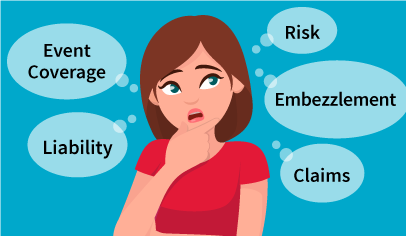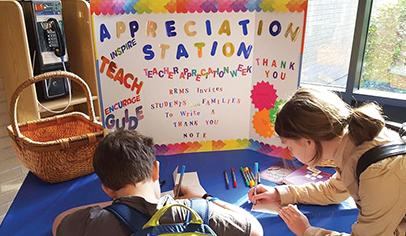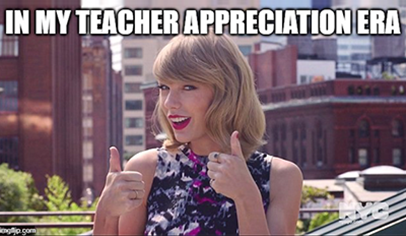The main role of a school parent group is to support the school community so that students can succeed. When a political issue arises that affects the school, there are two main questions to consider: Can the parent group get involved? And even if it can, should it get involved?
The first step in answering these questions is to look closely at your PTO bylaws and other standing rules. Some parent group bylaws have language prohibiting direct or indirect political action. In those cases, individual parents can speak in favor of (or against) a school funding measure or school board candidate, but the parent group as an organization isn’t allowed to take sides.
More commonly, if your bylaws don’t cover the issue of political activity, then what your group is allowed to do comes down to what type of organization you are. If your group is recognized as a 501(c)(3) tax-exempt organization by the Internal Revenue Service, you’re required to follow IRS rules.
Under the IRS guidelines, charitable organizations can’t be involved in political campaigns either directly or indirectly. That means that endorsing a candidate (direct involvement) is a no-no, as is anything that might give the appearance of favoring one candidate over another, like inviting only one candidate to speak to your group (indirect involvement).
Different rules apply to lobbying, or trying to influence legislation. Tax-exempt 501(c)(3) organizations may do some lobbying on issues important to their members; however, if lobbying is a “substantial part” of what a group does, it could lose its tax-exempt status. That means your group can advocate for or against a school bond issue or property tax levy, for example, as long as that work is only a small part of how your group spends its time and money. In this case, your group will also need to complete Schedule C and include it when you file your annual Form 990-EZ information return.
(The IRS doesn’t clearly explain how it defines a “substantial part” of an organization’s activities. School parent groups might also choose to be judged based on expenditures; for groups with total expenses less than or equal to $500,000, up to 20 percent may be spent on lobbying without affecting tax-exempt status.)
For both elections and legislation, activities that are considered educational in nature won’t put your group’s tax-exempt status at risk. These might include holding a candidates forum that includes everyone running for office or encouraging parents to vote on a legislative question without endorsing any particular position.
If your bylaws don’t mention political activity and your group isn’t a federally recognized 501(c)(3) organization, look to your organization’s mission statement. If issue advocacy is a core part of your mission, you might have more leeway for speaking out on a related political issue.
But even if your parent group is legally allowed to get involved in political or legislative issues, that doesn’t mean it should. By their nature, these issues have the potential to be divisive; if there are already strong feelings on both sides, taking one side could affect how well your group connects with parents. Although your group’s intention might be to support something that will benefit the school, if your action divides parents, it’ll make it harder for your PTO to accomplish its mission.
There’s another important person to keep in mind: the principal. Check with your principal about any additional restrictions on school parent groups and political activity within your school district or state, such as whether campaign materials can be distributed on school grounds or guidelines for participating in ballot questions.
Your principal should also sign off on all political communications coming from the PTO. Although school parent groups operate independently from the school, taking this step is important for maintaining a good working relationship with the principal.
Here are some common questions we hear from leaders about politics and PTOs.
Are there different rules for PTOs and PTAs?
Yes, for legislative activities. The National PTA includes advocacy as a core piece of its mission statement, has a long history of advocacy at the state and national levels, and issues policy positions on many issues. Before the March 2018 student walkout that drew attention to gun violence, many state PTAs issued statements of support that were in line with the position of the National PTA. Local PTAs are able to participate in legislative activities as long as they support the positions taken by the state and National PTA leaders.
On the other hand, PTOs generally don’t include advocacy in their mission statements; for those PTO groups operating as tax-exempt, 501(c)(3) organizations, legislative activities need to be related to the group’s work locally and kept to a minimum of time and money spent.
Neither PTAs nor PTOs should be directly or indirectly involved in political campaigns. (See the next question.)
One of the parents in our group is running for school board. Can we endorse her?
No. IRS regulations prohibit 501(c)(3) organizations from participating in any political campaign for public office, at any level. Be careful about any way you interact with a specific candidate. If your PTO adds a link to its website for only one candidate, that could be perceived as participating in the campaign. The legal education website Nolo.com provides a plain-English explanation of what types of activities are considered campaign participation.
Can we hold a candidates night so school parents can hear from school board candidates?
Yes. Voter education efforts by 501(c)(3) organizations are allowed by the IRS, so a forum event is fine if all candidates are invited and treated equally and if the emphasis is on sharing information.
Our teachers are going on strike. What should our group do (or not do)?
Teacher contract negotiations can affect parent groups in a lot of ways, and it’s important to be thoughtful about how your group responds. Even if most people in your school community think your teachers should be paid more, they may disagree about the details. As a parent group, the best thing to do is avoid being political and stay focused on your group’s main mission. If you take a position publicly, be clear that you’re doing so as an individual and not as an official representative of your school parent group.
Teacher Contract Negotiations and the PTO
There are other ways your group can help the school, though. Because some students rely on the meals provided at school, even a short school closure can mean that kids go hungry. To help families during the two-week teachers strike in West Virginia in February and March 2018, parent groups collected food to distribute to students and spread the word about short-term child care options.
Many West Virginia PTO leaders in our PTO and PTA Leaders & Volunteers group on Facebook noted that their parent groups had been careful not to appear to support or oppose the strike but that they felt comfortable making their opinions known as individual parents.
Some of our members are Facebook friends with a lot of other parents in the school community. Should they be cautious if they post about politics (even if it’s not related to the school)?
Being a leader doesn’t mean you can’t ever weigh in on the important issues of the day. Many people have issues they get really fired up about and post about on social media. Just keep in mind that no matter how restrictive your privacy settings are, nothing you post on social media should be considered private. It's easy for people to take screenshots of other people's posts and to circulate them widely, so choose your words carefully. Before you post about a political issue, think about how your posts and comments might be perceived by parents who don’t know you well outside of Facebook, and if it could cause people who disagree with you to avoid getting involved in your parent group.
Originally posted in 2018 and updated regularly

























